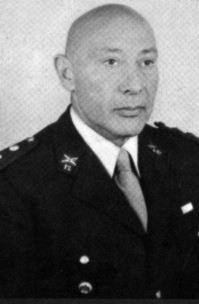|
Piaggi
Piaggi is an Italian surname. Notable people with the surname include: * Anna Piaggi (1931–2012), Italian fashion writer * Ítalo Piaggi (1935–2012), Argentine Army commander {{surname Italian-language surnames Surnames of Italian origin Surnames of Argentine origin ... [...More Info...] [...Related Items...] OR: [Wikipedia] [Google] [Baidu] |
Anna Piaggi
Anna Maria Piaggi (22 March 1931 – 7 August 2012) was an Italian fashion writer. She was known for her bright blue hair, liberal use of make-up, and her sense of style that mixed vintage and contemporary fashion. Career Piaggi was born in Milan on 22 March 1931.Diana Formaggio, Francesco Marraro (1987)''Il "chi è" del giornalismo italiano: repertorio ragionato ad uso degli uffici stampa'' Roma: Al. Ver. editrice. Accessed May 2014. She worked as a translator for an Italian publishing company Mondadori, then wrote for fashion magazines such as the Italian edition of ''Vogue'' and, in the 1980s, the avant-garde magazine ''Vanity''. From 1988 she designed double page spreads in the Italian ''Vogue'', where her artistic flair was given free expression in a montage of images and text, with layout by Luca Stoppini.. Victoria and Albert Museum. Archived 11 July 2007. These networks of images and ideas built upon Piaggi's awareness of fashion and art history to provide an open-ended ... [...More Info...] [...Related Items...] OR: [Wikipedia] [Google] [Baidu] |
Ítalo Piaggi
Lieutenant-Colonel Ítalo Ángel Piaggi (17 March 1935; San Fernando, Argentina – 31 July 2012, Buenos Aires) was an Argentine Army (1958–1982) officer who was involved in the Battle of Goose Green in the Falklands War. Career The defending Argentine army forces known as Task Force Mercedes consisted of the Lieutenant-Colonel Italo Piaggi's 12th Infantry Regiment (RI 12) and a company of the 25th Infantry Regiment (RI 25). The day after the battle Lieutenant-Colonel Piaggi surrendered all Argentine forces, approximately 1,000 men, including 202 men of the Argentine Air Force, Air Force. He was later drummed out of the army in disgrace. In 1986, he wrote the book ''Ganso Verde'' (a calque of "Goose Green", using the colour green to translate village green, [Village] Green), where he makes a strong defence of his decisions during the war and criticises the lack of logistical support from the Argentine commander-in-chief in Stanley, Falkland Islands, Stanley. He estimates th ... [...More Info...] [...Related Items...] OR: [Wikipedia] [Google] [Baidu] |
Italian-language Surnames
Italian (, , or , ) is a Romance language of the Indo-European language family. It evolved from the colloquial Latin of the Roman Empire. Italian is the least divergent language from Latin, together with Sardinian. It is spoken by about 68 million people, including 64 million native speakers as of 2024. Italian is an official language in Italy, San Marino, Switzerland (Ticino and the Grisons), and Vatican City; it has official minority status in Croatia, Slovene Istria, Romania, Bosnia and Herzegovina, and the municipalities of Santa Tereza, Encantado, and Venda Nova do Imigrante in Brazil. Italian is also spoken by large immigrant and expatriate communities in the Americas and Australia. Some speakers of Italian are native bilinguals of both Italian (either in its standard form or regional varieties) and a local language of Italy, most frequently the language spoken at home in their place of origin. Italian is a major language in Europe, being one of the official l ... [...More Info...] [...Related Items...] OR: [Wikipedia] [Google] [Baidu] |
Surnames Of Italian Origin
In many societies, a surname, family name, or last name is the mostly hereditary portion of one's personal name that indicates one's family. It is typically combined with a given name to form the full name of a person, although several given names and surnames are possible in the full name. In modern times most surnames are hereditary, although in most countries a person has a right to change their name. Depending on culture, the surname may be placed either at the start of a person's name, or at the end. The number of surnames given to an individual also varies: in most cases it is just one, but in Portuguese-speaking countries and many Spanish-speaking countries, two surnames (one inherited from the mother and another from the father) are used for legal purposes. Depending on culture, not all members of a family unit are required to have identical surnames. In some countries, surnames are modified depending on gender and family membership status of a person. Compound surn ... [...More Info...] [...Related Items...] OR: [Wikipedia] [Google] [Baidu] |


